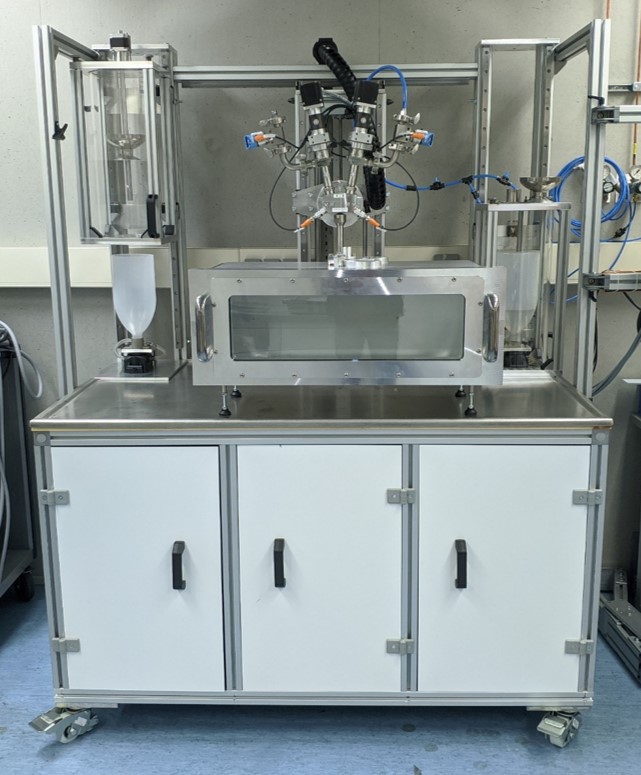With the steady increase in electronic assemblies and their use, for example in motor vehicles and sensors, the demands on their long-term stability and functional reliability are also rising. Polymer potting is an ideal way to protect these components.
By potting or applying protective coatings, the components to be protected, for example a printed circuit board, are completely enclosed by a polymer to ensure their reliability. The potting compound leads to better heat dissipation, mechanical protection as well as protection against external influences and also electrical insulation, which ensures the functionality of the components even in harsh environments.
Defects can lead to high costs
Since coating the assembly is usually the last step in the value chain, errors here can lead to high costs, among other things. Defects introduced in the process (for example blowholes, incomplete curing) as well as residual stresses in the potting compound can often lead to difficulties. Debonding, stress cracking in the potting compound or complete component tear-off are particularly problematic here. The right choice of the potting compound, the appropriate process sequence and quality monitoring during production therefore are of great importance.
Typical potting methods, which are also used by the experts at Fraunhofer IFAM, are manual potting with mixing in a vacuum and automated potting under normal pressure or under continuous or discontinuous vacuum. Alternative or complementary technologies for the protection of electronic components which are researched and used at Fraunhofer IFAM are protective coatings and plasma coatings.
Determination of material and manufacturing influences
With our experts, Fraunhofer IFAM is your service partner for all aspects of potting and can take care of your production process right from the start. This requires a holistic view of the material and manufacturing influences on the system and their mutual interactions. We can offer comprehensive services for this:
- Selection and qualification of potting compounds and manufacturing processes
- Flow simulation using Computational Fluid Dynamics CFD
- Design and analysis of load cases and residual stress states by means of FEM, determination of (thermo-) mechanical parameters
- Cleaning and pretreatment processes for adhesion optimization
- Substrate and surface characterization
- Equipment selection, application and dosing of potting compounds
- Testing of durability with regard to operating load, media resistance and climatic stresses
In addition, we can analyze your manufacturing process and access extensive data on a wide range of potting compounds independent of the manufacturer - for example, epoxy, polyurethane, silicone or polybutadiene potting compounds. This also benefits you in monitoring the quality of your production process.
We have an extensive range of technical equipment and feasible processes to offer. These include:
- Thermal analysis, determination of end properties
- Processing properties, rheology, curing kinetics, pot life determination
- (Vacuum) potting equipment
- Adhesion tests on relevant surfaces
- Tests before and after climatic exposure
- Shrinkage measurements
A complete list of our equipment can be found here.
We exchange ideas with the industry - and pass on expertise
Our employees have many years of expertise in the field of polymer potting. We are keen to pass on this experience and our knowledge to circles of experts and to exchange ideas with the industry. To this end, we organize, among other things, the biennial Polymer Potting Symposium at our site in Bremen, which is firmly established in the industry. In addition, together with the Süddeutsches Kunststoff-Zentrum and the Haus der Technik, we organize the annual specialist seminar, at which basic practical knowledge about polymer potting is imparted.
 Fraunhofer Institute for Manufacturing Technology and Advanced Materials IFAM
Fraunhofer Institute for Manufacturing Technology and Advanced Materials IFAM
